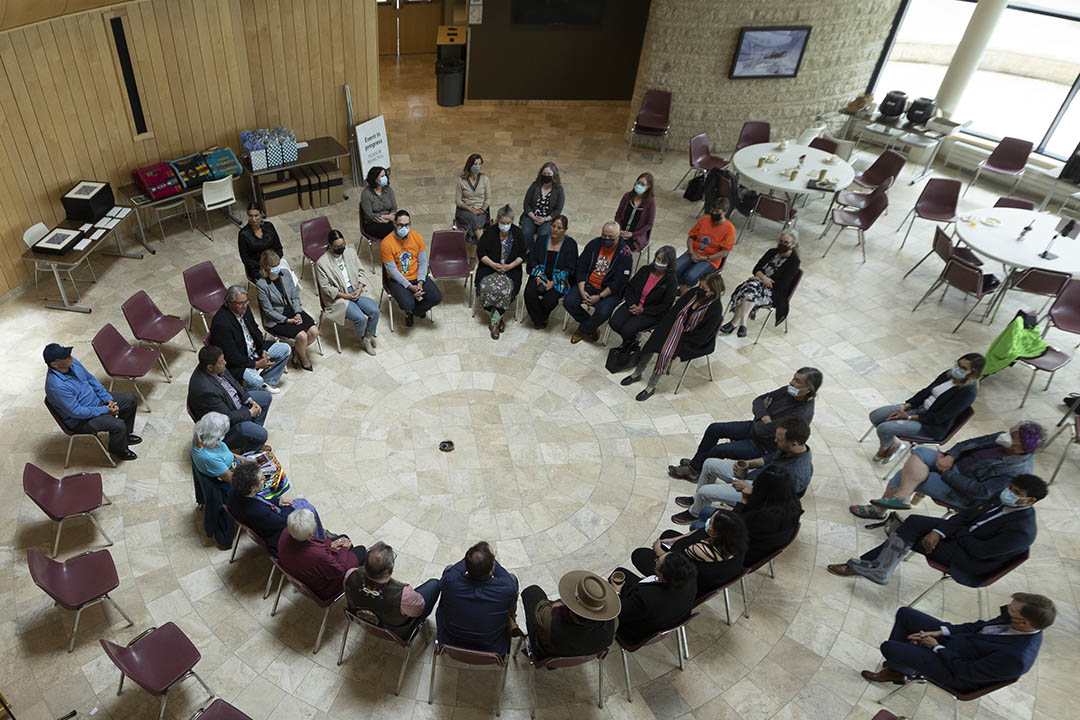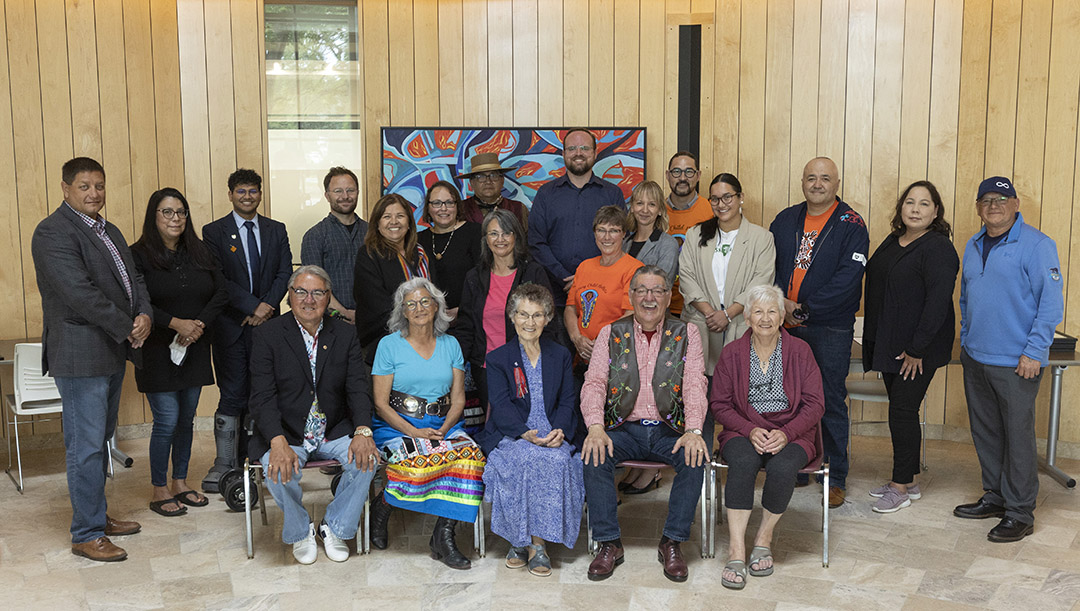
USask approves policy on Indigenous membership/citizenship verification
The University of Saskatchewan (USask) has approved a new policy on Indigenous membership/citizenship verification, the result of ground-breaking work by a task force led by Indigenous Elders and leaders.
“This new policy approved by our Board of Governors reflects USask’s commitment to transformative decolonization and reconciliation,” said USask President Peter Stoicheff. “This work on Indigenous membership/citizenship verification is imperative and timely. I am particularly grateful for the leadership and guidance of our Indigenous partners without whom this policy work could not have been successfully undertaken.”
Until now, verification of Indigenous membership/citizenship has relied on self-identification and has been conducted internally.
The new policy will require a documentation verification process to be completed by all those holding future employment positions, student scholarships, or other forms of material advantage created for Indigenous peoples. Under some circumstances, verification may also be required for those who already hold such positions.
Importantly, the documentation of Indigenous membership or citizenship will be determined by Indigenous governments and communities.

The 28-member Indigenous task force, comprising prominent Indigenous Elders, leaders and Knowledge Keepers and supported by a 20-member internal advisory circle of university representatives, began their policy development work in January 2022. The USask Board of Governors approved the policy on July 8.
A full list of task force members is attached to this release. It included delegates from Métis Nation–Saskatchewan (MN–S), the Federation of Sovereign Indian Nations, Saskatoon Tribal Council, Prince Albert Grand Council, and Office of the Treaty Commissioner.
The name of this policy “deybwewin (Saulteaux)| taapwaywin (Michif)| tapwewin (Cree)” means truth—truth to self, truth to each other, truth to the ancestors, and truth to the land.
“Guided by Indigenous members of the task force, this policy recognizes the inherent rights of self-determination and self-governance of Indigenous communities,” said Dr. Airini (PhD), USask provost and vice-president academic.
“It is important that the work regarding Indigenous membership/citizenship verification has been led by Indigenous peoples, and we are particularly grateful for the participation of external Indigenous partners who bring the perspectives of their communities.”
A permanent Indigenous-led standing committee will be in place by September to develop an implementation plan and procedures for the policy.
“This policy positions the Indigenous communities to guide the university in this matter,” said Dr. Angela Jaime (PhD), interim vice-provost Indigenous engagement and chair of the task force. “The Indigenous communities have asked for this policy. Centering the voices of Indigenous Peoples is reconciliation.”
MN-S will provide support and approvals on verification under the terms of an agreement of citizenship signed with USask.
“With our Indigenous Elders guiding the work, the task force has come up with a positive solution to Indigenous verification,” said MN–S President Glen McCallum. “As the Métis Nation Government in Saskatchewan and in the spirit of reconciliation, we were pleased to be meaningful participants in the development of this policy. The ground-breaking work of this task force provides a strong example to be seriously considered by other institutions in the country.”
“Under Treaty and Inherent Rights, First Nations are the traditional rights holders of their citizenship and sovereignty. We at the Saskatoon Tribal Council are pleased the University of Saskatchewan has created and endorsed a policy that recognizes First Nations communities as these traditional rights holders. This will enable accountability for those entering positions meant for Indigenous peoples,” said Saskatoon Tribal Council, Tribal Chief Mark Arcand. “We endorse this process, which honours the voices of our Elders, and believe other institutions across Turtle Island should follow that process.”
Consultation with First Nations communities on implementation will begin in August 2022.
Task Force Members
- Chair: Angela Jaime, Vice Provost, Indigenous Engagement (Interim)
- Elder Harvey Thunderchild
- Elder Joseph Naytowhow
- Elder Josie Searson
- Elder Louise Halfe
- Elder Louise Pederson
- Elder Norman Fleury
- Bob Badger, Cultural Coordinator, Office of the Vice-Provost, Indigenous Engagement
- Dale Worme, Delegate for the Office of the Treaty Commissioner
- Tribal Chief Mark Arcand, Delegate for the Saskatoon Tribal Council
- Rhonda Bluehorn, Delegate for the Federation of Sovereign Indigenous Nations
- Doloris Netmaker, Delegate for the Federation of Sovereign Indigenous Nations
- Robin McLeod, Delegate for the Prince Albert Grand Council
- Winona Wheeler, Associate Professor, Indigenous Studies, College of Arts and Science
- Karla Williamson, Assistant Professor, Educational Foundations, College of Education
- Kurtis Boyer, Faculty Lecturer, Johnson Shoyama Graduate School of Public Policy
- Mary Longman, Associate Professor, Art and Art History, College of Arts and Science
- Graeme Joseph, Team Lead, First Nations, Métis and Inuit Student Success, Aboriginal Student Centre
- Sheila Pocha, Program Head, SUNTEP/GDI Saskatoon
- Val Arnault-Pelletier, Senior Lead, Indigenous Programming and Initiatives, College of Medicine
- Yvette Arcand, Director, Indian Teacher Education Program
- Adam McInnes, Graduate Student Representative
- Aubrey-Anne Laliberte-Pewapisconias, Undergraduate Student Representative
- Candice Pete-Cardoso, Director, Indigenous Land Management Institute
- Amaranta (Amy) Sokól Como, Project Manager, Indigenous Initiatives, Office of the Vice-Provost, Indigenous Engagement
- Matt Dunn, Director, Indigenous Engagement, Office of the Vice-Provost Indigenous Engagement
- Candace Wasacase-Lafferty, Senior Director, Provost’s Indigenous Initiatives and Community Relations, Office of the Provost, and Vice President Academic

